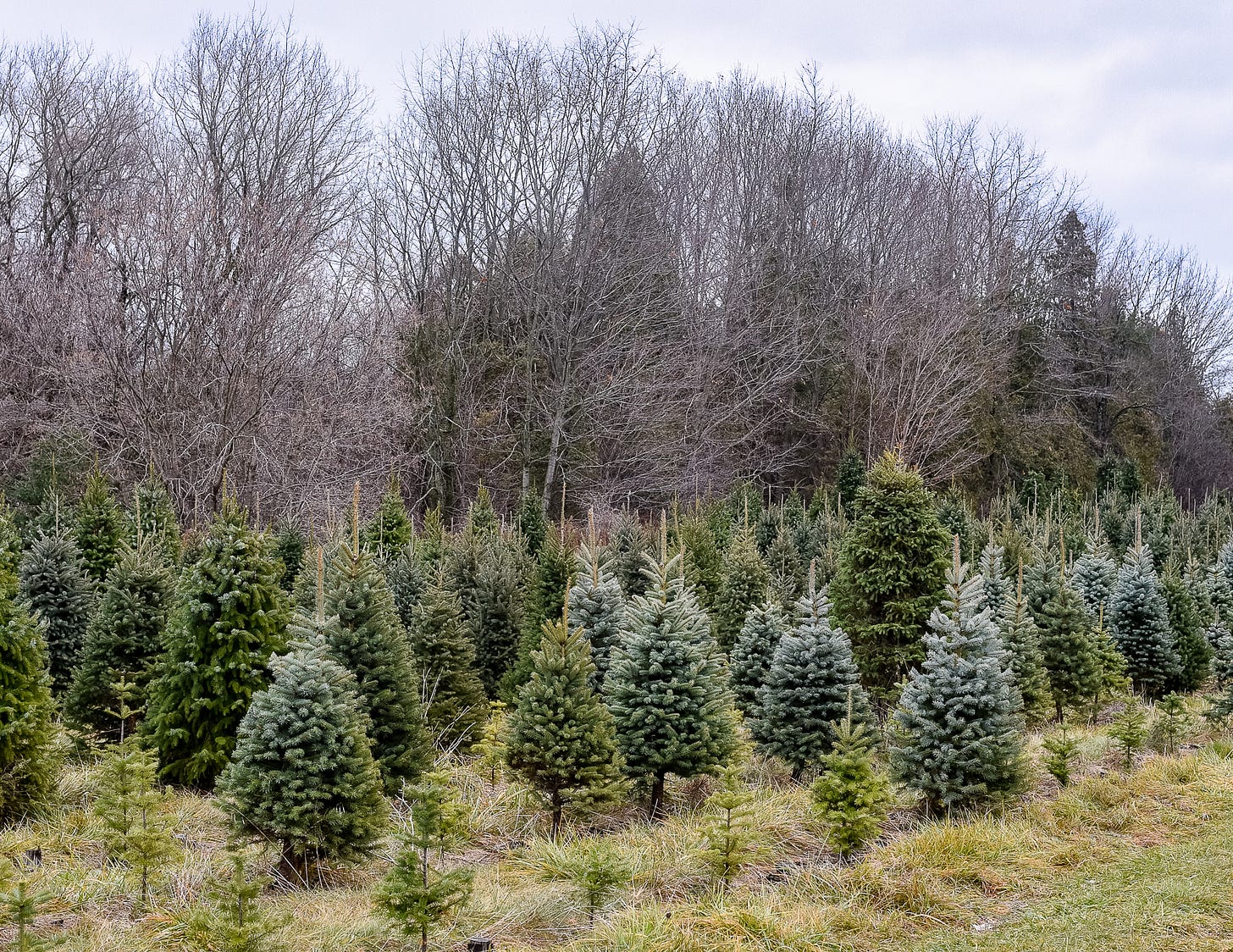Five Christmases Alone, Here's What I've Learned
Plus, holiday love stories to watch and listen to.
It feels like a missed opportunity that I’m not alone this Christmas—it would’ve brought me so much joy to see others experiencing the loneliness I felt all those years on my own. Yet here I am, the Grinch, bubbling with two Who’s in our own little Whoville.
We’ve had Christmas-style dinners almost every night—pot roast, Swiss Chalet’s Festive Special—you could say I’m sampling the Who Hash. I’ve actually been watching Christmas movies over a real(!) fireplace, eggnog in-hand. I even went to a Christmas tree farm to chop down our tree, something I’ve never done in my life. It’s like five years of missed Christmases condensed into two weeks. They tell me this is actually a toned down version of their normal holiday cheer, they’ve been holding back because they know I hate Christmas.



